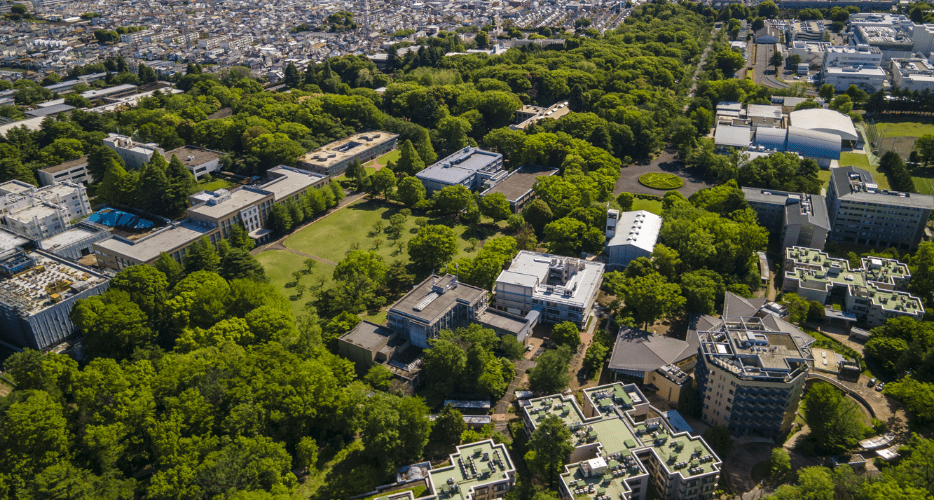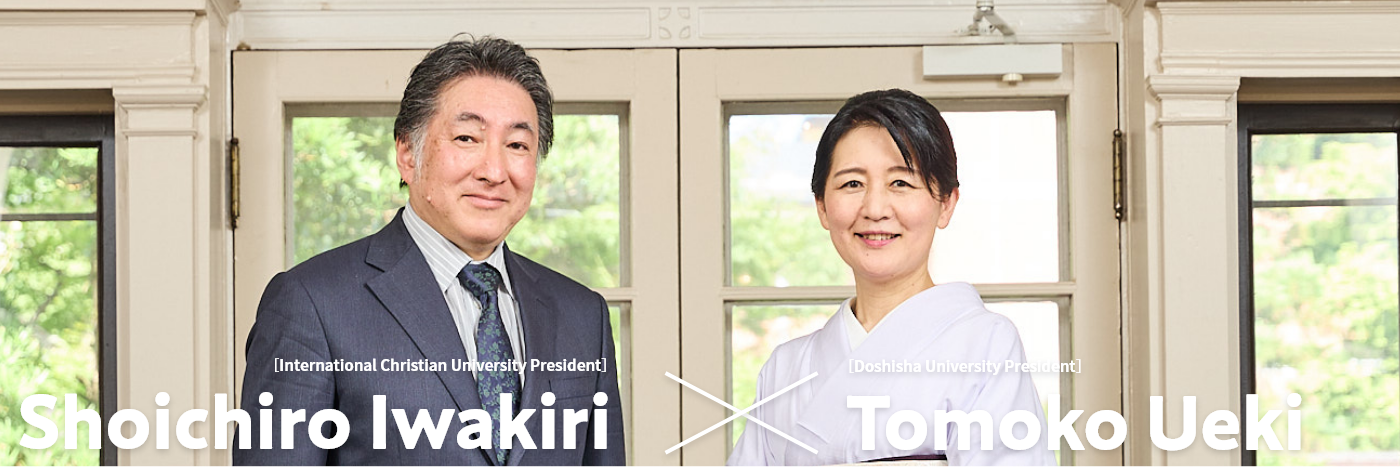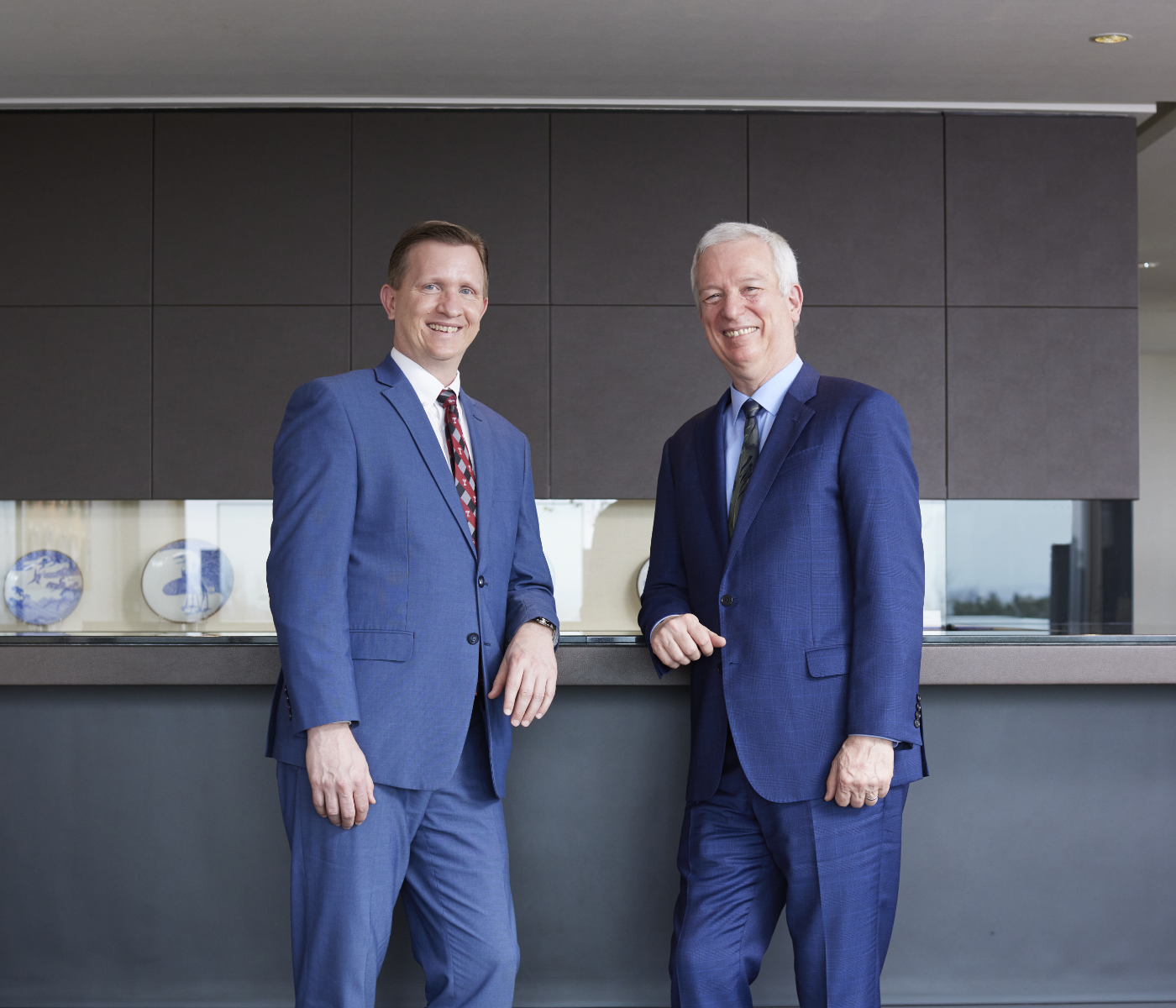
Temple University, Japan Campus (TUJ) commemorated its 40th Anniversary in summer 2022 and ICU, its 70th in April 2023.
This dialogue compares the two institutions with roots in the American education system, to think about the past, present and future of universities.
#Global compatibility #US-oriented #ChatGPT #Innovation #Anniversary year
University Education Amidst Social Turmoil and the
Impact of Generative AI
In the 80s and 90s, many American universities opened campuses in Japan. In 2023, only two of the nearly 40 branch campuses that existed in their heyday still remain.
Temple University was the first American university to establish a branch in Japan. Its Japan Campus, founded in 1982, continues to offer an American education built on a curriculum based on that of its Main Campus in the U.S. On the other hand ICU, established in 1952, was founded out of a deep remorse for World War II and to pursue peace. It was modeled after liberal arts colleges in the U.S.
While many other American institutions withdrew from Japan, how did TUJ maintain its foothold in the country and continue to evolve? What are the differences and similarities between TUJ and ICU, both with roots in the U.S.?
In January 2023, President and Dean of TUJ, Matthew J. Wilson and ICU Vice President for Academic Affairs Robert Eskildsen engaged in a dialogue amidst the ever-expanding impact of generative AI and ChatGPT launched in November 2022.
What kind of experience should universities provide amidst increasing social turmoil and what are the qualities that need to be nurtured? Their conversation looks into the role of higher education today.
INDEX
- 01 Unraveling the Fundamental Idea Behind the Global Orientation of ICU and TUJ From the Past: Coming Together to Understand One Another and Moving Forward toward Progress
- 02Designing Experience and Mutual Interaction for an Uncertain Future
- 03The Pros and Cons of STEAM Education in the U.S.The Arts Matter Today More Than Ever
- 04With Further Uncertainty Ahead, the Value of Taking the Long Road and Comparative Studies
- 05Cultivating the Confidence to Embrace the Fear of the Future The Importance of an Education That Allows for Failure and Making Discoveries
Paragraph 01
Unraveling the Fundamental Idea Behind the Global Orientation of ICU and TUJ From the Past: Coming Together to Understand One Another and Moving Forward toward Progress
Temple University was established approximately 140 years ago in Philadelphia, Pennsylvania, in the northeastern part of the U.S. This comprehensive public research university has been expanding its curriculum and student body, with currently more than 30,000 students enrolled at its campus in the U.S. The University opened its Rome campus in 1966, and was the first American university to open a branch in Japan (TUJ) in 1982. These overseas campuses complement the University’s unique international initiatives. In Times Higher Education (THE) World University Rankings 2023, Temple was ranked in the top 301~350th group among 1799 universities in 104 countries.
Wilson explained that, “At TUJ, about 40% of the students are from the U.S., and 40% are from Japan. The remaining are from nearly 70 countries around the world. TUJ’s strength is that students can obtain an American university degree from Temple University, a first-tier institution in the U.S. All classes are conducted in English in an international environment. Students wishing to study in Japan have the opportunity to study in English, as well as learn the Japanese language and understand the local culture.”
Eskildsen talked about his expectations for TUJ with its impact on higher education in Japan. “International education in Japan tends to focus on globalizing the curriculum and organization. But TUJ offers an American experience within a global context, a rare opportunity of benefit to Japanese society.”
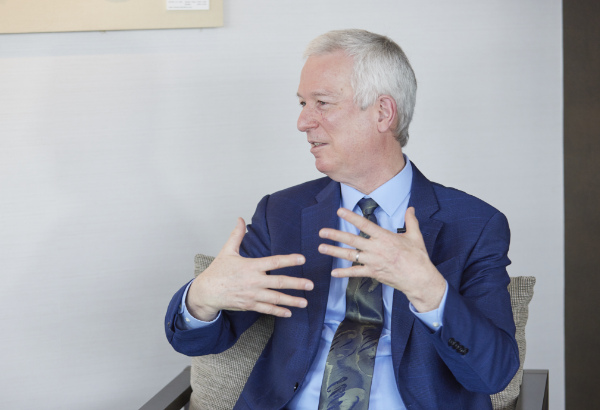
ICU has opened its doors to the world since its foundation based on its philosophy of establishing everlasting peace in the world. The two universities share common aspects such as an international learning environment and curricula based on liberal arts. Eskildsen described the bilingualism as a core element of the education offered at ICU in English and Japanese.
“At ICU, instruction is offered in English and Japanese, the two official languages on campus. Students take either the English for Liberal Arts or Japanese Language Program as a graduation requirement, which offers them an opportunity to study a language other than their mother tongue. In recent years, our language policy has been two plus one: students are required to be highly functional in English and Japanese, while also learning another foreign language. This showcases our emphasis on communication, engaging with people beyond the student’s own language and cultural context. It is important not only to acquire language proficiency for communicating with people around the world, but also to nurture the basics in the thinking process.”
Wilson discussed his personal experience, highlighting the importance of encountering dissimilar cultures and values. “I first came to Japan during college, as a volunteer missionary doing service work. Initially, I was eager to do things the American way, but after living in Japan and engaging with the people, I realized that the Japanese approach offered an abundance of possibilities. It became evident that by combining the two, we would have a very promising future. Having served as president of two American universities in the past, I am convinced that comparative education is indispensable, from different perspectives in terms of languages, cultures and values.”
TUJ cultivates academic rigor based on the global standard curriculum of the Main Campus in the U.S., while ICU emphasizes bilingualism in English and Japanese and liberal arts education. Both institutions stress the importance of a diverse student body that transcends languages and cultural backgrounds, their global orientation reflecting the history of their establishment. The administrators share the view that comparative analysis is necessary in relation to diverse countries and regions, without falling in the trap of ethnocentrism. In Wilson’s words, “At the core of the global orientation at ICU and TUJ, we have the mission for global peace, coming together in peace and harmony and being able to understand one another, to move forward to progress.”
Paragraph 02
Designing Experience and Mutual Interaction for an Uncertain Future
Living in a VUCA world today, SDGs have been proposed as a way to address an uncertain future with complicated and interconnected global problems. Needless to say, the promotion of DX and AI during the pandemic played a part in accelerating social change. It will be indispensable for people to cooperate regardless of differences in nationality, race, gender or culture, to overcome the challenges posed on this planet. Amidst growing momentum to respect diversity around the world, Japan seems to be behind the curve, as it ranked lowest in gender equality among OECD member states. What perspectives are necessary in cultivating human resources in Japan, to come to terms with rapid social change and the need to accept diversity?
Wilson described the strengths of the education TUJ offers. “We provide access to an American university degree in Japan from Temple University, a very well-known institution in the U.S. This is an advantage for students seeking to further education or employment in the U.S. They also benefit from being able to tap into the University’s Career Center in Philadelphia supported by a network of 360,000 alumni living in 145 countries. With increasing interest in Japan for globalization and preparing people for an international strategy, there seems to be a growing premium on an American degree and an international experience. When I was a student, an international experience and English proficiency were not as highly valued in Japan as they are today.”
Eskildsen agreed that the college experience of students and interaction between them are important. “The majority of our students are Japanese nationals, but they come with complicated and interesting backgrounds in ways that I personally enjoy. When we talk about respect for diversity, we should not limit the discussion to superficial differences such as nationality, race or gender. To coexist with others in the real sense, it will be indispensable to know others’ values and cultural background through dialogue. This is why ICU prepares students to communicate in various ways to engage different people with a global perspective. It will be important to understand languages and cultures students are not familiar with in modern society where internationalization will progress even further. The experience and mutual interaction at ICU will add value to their lives and ability to work.”
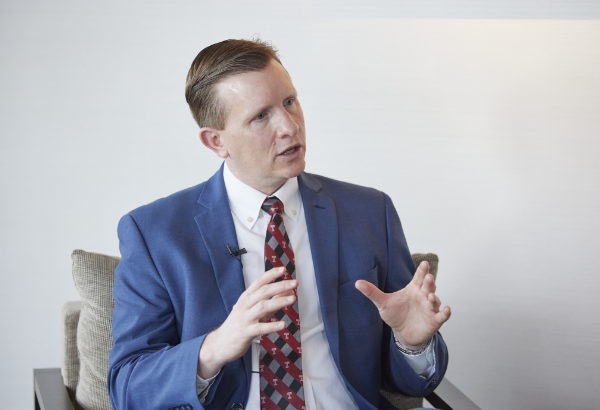
The two leaders remarked on the importance of the experience and mutual interaction in education for students in the VUCA age of turmoil. How we design a campus that provides an experience in interaction on campus that brings people from varying backgrounds together will perhaps be crucial to the fate of our society, in nurturing human resources who will lead society a decade or two from now.
Paragraph 03
The Pros and Cons of STEAM Education in the U.S.
The Arts Matter Today More Than Ever
Due to rapid innovation in technology and globalization, we face many social issues today. To find solutions to these problems, we need to amass and integrate knowledge across different fields. In reaction to these challenges, the Obama administration drew attention to its policy of prioritizing improvement in science, technology, engineering and mathematics (STEM) education. STEAM, its successor, incorporated the arts in the mix. In Japanese, the word arts is usually translated as geijutsu, which refers to fine arts and music, However, here it includes dancing, the theatrical arts, sports, as well as literature and history, academic fields that encompass a wide range of subject matter that relates to the body, sensitivity, and narrativity. Pursuing a comprehensive understanding of these fields helps to stimulate creativity and to encourage innovative ideas. The Japanese Ministry of Education, Science, Culture, Sports and Technology (MEXT) incorporated the idea of STEAM education in revising its Curriculum Guidelines and in designating Super Science High Schools (SSH) and Super Global High Schools (SGH). In the U.S., the importance of creativity and soft skills rather than hard skills, has also been receiving more attention.
Eskildsen agreed that people need the enjoyment that the arts can provide, in referring to the social value of liberal arts. “People who have the technological knowledge can write a good computer program or design a good algorithm, but if they don’t know the difference between different cultural groups, they’re not going to put that knowledge into their algorithm. Having people with broader knowledge in liberal arts who can engage with people in different fields is useful in making the most of each to achieve results.”
He also talked about going back to the concept of civilization in grasping the value of arts. “The civilization human beings have cultivated over the ages has brought more than just technical solutions. As a part of civilization, the arts provide social and cultural perspectives in thinking that push students to think about their own personal values to ask the question, ‘What makes my life worth living?’”
Wilson agreed. “Our memories are short, so I think there’s so much value in what has transpired previously. In the humanities and social sciences, there are giants that preceded us from whom we can learn in shaping the fabric of our lives. Only by passing on this kind of education, can we avoid the mistakes our ancestors made. Witnessing the Russian invasion of Ukraine today, I find it frightening that there is a disconnect with the horrors of war that preceded it, people thinking that attacking Ukraine is somehow justified. As educators, we need to continue to raise awareness for the importance of studying the arts.”
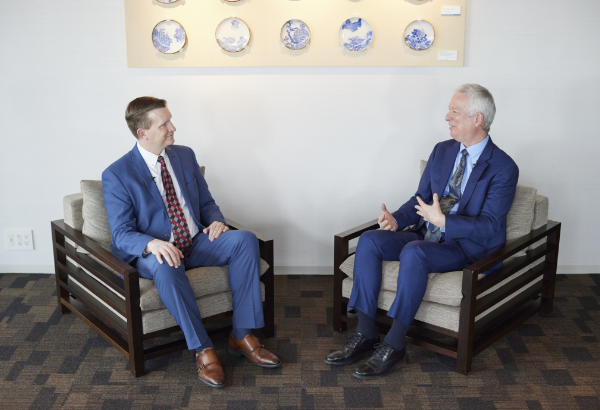
We sense some wonderful possibilities with advances in information technology such as AI and the Internet. But these are not magic bullets, and have their weaknesses. As Eskildsen explained, “The advantage we have as human beings is that we have hearts and souls as long as we don’t lose them. To demonstrate this potential, we need to learn from the past and cooperate with others for a better future through the arts.”
Paragraph 04
With Further Uncertainty Ahead, the Value of Taking the Long Road and Comparative Studies
ChatGPT, a conversational AI chatbot introduced in November 2022, had an immediate impact on various industries. Users type in prompts for responses as if chatting with another human. The reliability of the answers has also been extensively discussed. Chat GPT takes in the massive information available on the Internet to produce responses with its understanding of sophisticated vocabulary and expressions. It can remember past conversations and revise answers according to users’ directions. Recently, Metaverse, a network of 3D virtual worlds forming the next evolution in social connection, has been in the spotlight. How are the two universities adapting to the rapid progress in information technology?
Wilson explained, “From the perspective of liberal arts, TUJ offers instruction and lectures by leaders in industry. Examples are our general education courses on the Metaverse and eSports, offering students with a hands-on understanding of the new technology.” But he expressed concern that the technology was taking over roles that humans have played. “Chat GPT delivers in seconds what took us hours to research. To avoid job displacement, universities need to offer ways for students to hone their creativity, leadership and communication skills, capabilities where AI falls short.”
Eskildsen responded with the observation that “Some universities are having to change the way they assess students’ participation because you can get ChatGPT to work on your assignment with a better result than your own in less time. The other problem is that AI will pull out answers from the Internet, where there are a lot of mistakes and incorrect information, so users need to confirm the accuracy of the responses. In these circumstances, we need critical thinking skills to discern what we need from AI and use them to our advantage for the world. These are the qualities that need to be cultivated as an added value in education for the future. We have to teach students how to use AI and other tools critically, to make life more efficient but at the same time make sure we are changing the world in a good way. That’s where the value added comes in with education.”
To grasp issues critically, we need to liberate ourselves from conventional thinking and incorporate diverse cultural values to think about the issues. Comparative studies are an integral part of the liberal education offered at TUJ and ICU, where classrooms are filled with diverse students.
Wilson recounted an example that left a deep impression on him. “As a lawyer, I taught a Japanese Law course at TUJ Law School from a comparative context, to students from the U.S., Europe, Africa and South America with aspirations for the Bar. One day a Japanese lawyer asked if she could take the course. Although I consented, I felt nervous with her in the classroom at first because she might feel uncomfortable with an interpretation of her legal system from a Western viewpoint. But after the course, she thanked me for letting her participate, saying that it provided her with an objective perspective and fresh take on Japanese law, which she intended to apply to her own practice and share with her colleagues.”
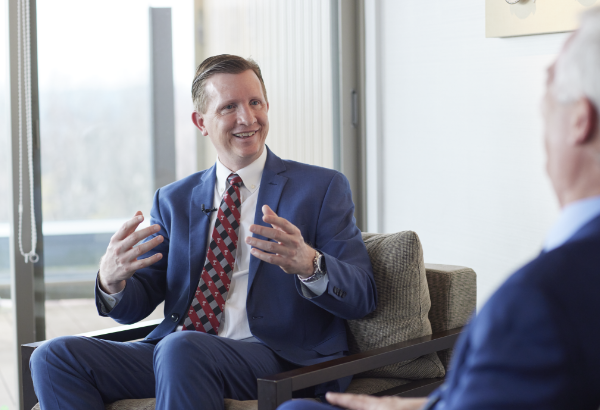
Eskildsen thanked Wilson for sharing this story. “This is a very interesting anecdote for me, as I teach Japanese history at ICU. Depending too much on technology such as AI would not allow for this kind of dialogue, with students tending towards short-sighted solutions. There is so much you can learn through experimentation by taking the long and winding road in discovering the answer yourself. We as educators need to get the message out that there’s value in experience and interaction.”
Paragraph 05
Cultivating the Confidence to Embrace the Fear of the Future The Importance of an Education That Allows for Failure and Making Discoveries
While social issues continue to mount in Japan, generating innovation has been advocated as a way out of turmoil. The March 2021 Cabinet Decision 6th Science Technology Innovation Basic Plan advocated strengthening the capacity for innovation as a policy for a sustainable and resilient society in the face of threats and uncertainly. In recent years, businesses and MEXT have been cultivating innovators through entrepreneurship education. Despite some progress, Eskildsen said, “There are still some real problems,” especially in comparison with the U.S. and Europe.
Wilson gave an example. “When I engage with a group of high school students in the United States about the future, they talk about the type of career they want, what they want to do and what they want to become. In contrast, Japanese high school students tend to talk about who they want to work for as opposed to what they want to do. I see an entrepreneurial spirit in the former, while I sense a need to belong in the latter, an emotional need to affiliate with and be accepted by members of a group. If the objective is to nurture entrepreneurs, a different approach must be adopted to make changes in the education system. In fact, the education system in the U.S. offers ample opportunities to develop thinking, creativity and leadership skills, with many American entrepreneurs now conducting business on a global scale and literally changing the world.”
Eskildsen agreed. “Part of my mission as Vice President is to cooperate with MEXT in making university education more flexible to make it easier to tap into the possibilities of innovation. However, Japanese corporations are not flexible enough to embrace innovation, they lack the structure. What we see in the U.S. and Europe is destructive innovation, which tears things apart to create something new. This may be quite difficult and frightening for a lot of Japanese. To change the situation, we need reforms in university education. Universities need to nurture confidence in students to embrace the fear of the future, look at what happened in the past and what is happening now, and imagine ways of reordering society and their lives.”
The Covid-19 pandemic made way for disruptors around the world. As university administrators during this crisis, both Eskildsen and Wilson worked on various reforms such as shifting to online courses, adopting the telework approach, and compiling a business continuity plan. They had their share of growing pains, but Wilson said, “It takes difficult times to be flexible and make changes work.”
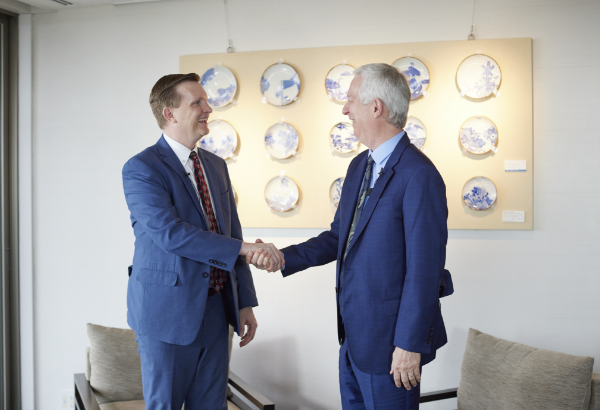
He further explained that, “Innovators need the opportunity to fail when they roll out new ideas. I teach Comparative Cross-cultural Negotiations, an intensive course where students interact with classmates from a different culture, and gradually deepen their understanding for different cultures with failures. One of the objectives of the education we offer is to provide opportunities to fail in their experiences and interaction.”
Eskildsen agreed. “As an educator, I think the key is to push students to make discoveries. I strongly hope that individual students go through a process of numerous discoveries to come up with their own conclusions.”
Innovators sometimes fear disrupting the existing order of things. To overcome this impediment, they need an education that allows them to experience failure and interact with others as they discover new ways of doing things. Ideas for university education that both administrators shared in this dialogue may provide new approaches to overcome the strong waves of turbulence.
[Postscript]
Gaining Insight From This Dialogue
Upholding a Particular Educational Tradition in Times of Uncertainty
In their conversation the two administrators had many ideas in common: the importance of coming in contact with different languages, cultures and values as an experience and working with others for interaction; understanding the value of the arts that fills us with emotions in an era of accelerated technological development; not accepting the latest technology unquestioningly and using critical thinking to evaluate changes based on personal experience and interaction with others; and, to have the opportunity to fail while striving for innovation. The dialogue between the two revealed their sharp insight about the past, present and future, as devoted educators responsible for nurturing the next generation.
Japan does have many issues that need to be tackled. That means the education offered at both ICU and TUJ will play a crucial role. To learn in a liberal arts context with students from diverse countries, languages, cultures and values nurtures a perspective in comparative analysis, giving students an edge in every aspect of their lives. In Wilson’s words, “One of the strengths of Japan is that it studies what the world does, observes how other governments, cultures, and societies approach similar problems to come up with unique solutions.” Although not entirely optimistic, the two academics see bright days ahead.
Related Information
Sub Dialogue
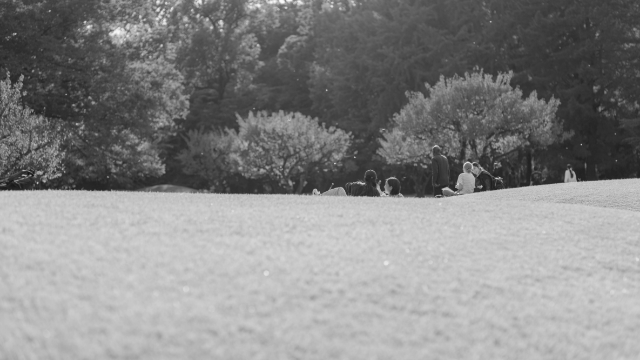
Intellectual exchange
Anecdotes About the Advantages of a Liberal Arts Education
The professors who grew up in the U.S. and now live in Japan, shared stories about the fascinating aspect of liberal arts.
- Eskildsen
- “After graduating from a university in the U.S., I came to Japan because I wanted to learn the Japanese language. I took an evening course at TUJ, an American university in Japan. This opportunity opened the door for me to come to ICU as a graduate student. In retrospect, the door to TUJ changed the trajectory of my life.”
- Wilson
- Small things can sometimes lead to unexpected results. With aspirations of becoming a lawyer, I was a political science major in the U.S., where I took a meteorology course, simply out of pure interest. While looking for a job in Japan just before I graduated, I found an advertisement for a company that makes hydrological and meteorological instruments looking for someone to do international marketing and technical translation. I had experience with neither, but wrote to them anyway, highlighting that I had studied meteorology. To my surprise, I was hired.
- Eskildsen
- That is a wonderful episode that illustrates the potential of liberal arts. In my case, liberal arts came to me at ICU Graduate School, where I was surprised that faculty would answer questions from students even if they had to stop the lecture. Respect for whatever each individual student had to say goes back to the idea of having a bilingual or multicultural approach towards education. At first, I had difficulty dealing in Japanese with concepts I knew in English, but that experience resulted in a much more sophisticated understanding of the world and a better way of communicating.
- Wilson
- “I’m convinced that an understanding of different languages and academic fields expands the orbit of exchange. Going back to the meteorology example I mentioned earlier, a TV broadcasting executive with whom I had a conversation about meteorology asked me to do the weather once, as a special guest on NBC nightly news in Cleveland, Ohio. Learning a broad field and interacting with people specializing in different fields will cultivate new perspectives that can open doors to unexpected opportunities.”
PROFILE
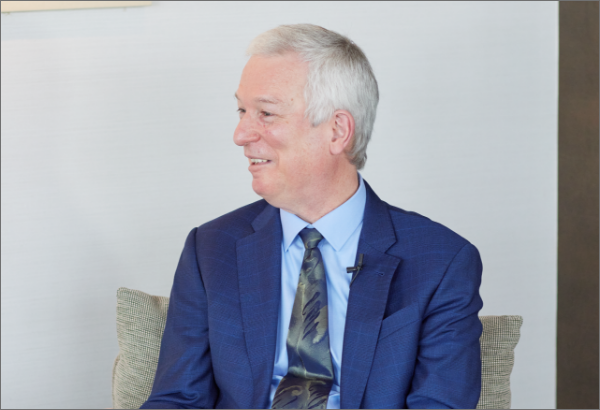
Robert Eskildsen ICU Vice President for Academic Affairs
After completing the master’s program at ICU Graduate School Division of Comparative Culture, Vice President Eskildsen received a doctorate in modern Japanese history from Stanford University in the U.S. He taught at Smith College and J.F. Oberlin University before his appointment as ICU Senior Associate Professor in 2014, and Professor in 2019. He has been serving as Vice President for Academic Affairs since April 2020.
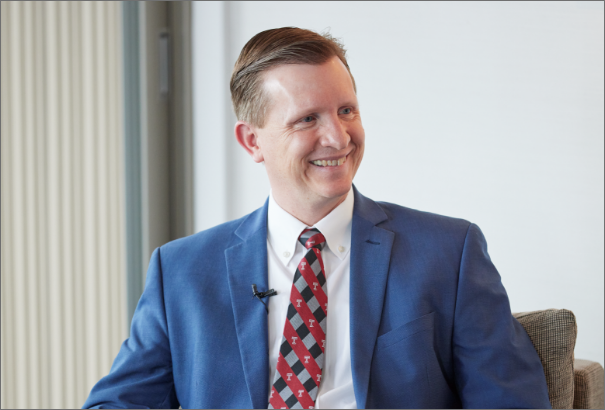
Matthew J. Wilson Dean and President of Temple University, Japan Campus
Wilson received a Bachelor of Science in Political Science and a Bachelor of Arts in Asian Studies with a minor in Japanese from the University of Utah. He earned his Juris Doctor degree from Temple University Beasley School of Law. In his early career, he worked for a law firm in the U.S., as well as Japanese companies. From 2013 to 2018, he was president of the University of Akron in Ohio, and led Missouri Western State University from 2019 to 2020. His roles at TUJ from 2003 to 2009 included general counsel, director of the law program and senior associate dean. He returned to TUJ in 2020 to oversee and lead the Japan campus.


